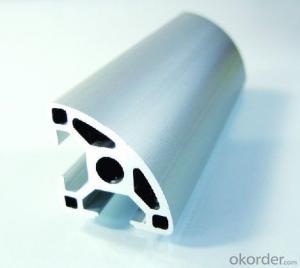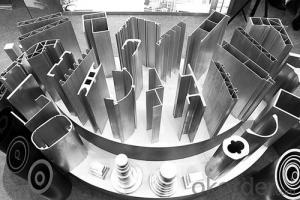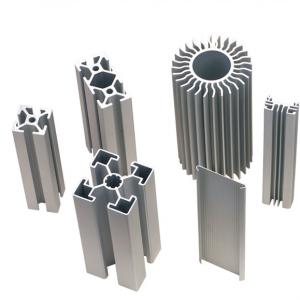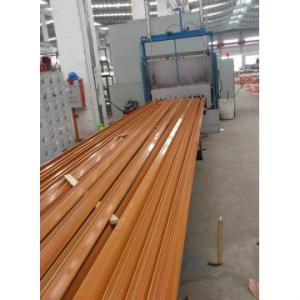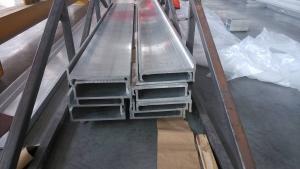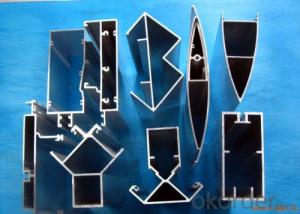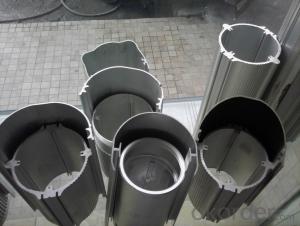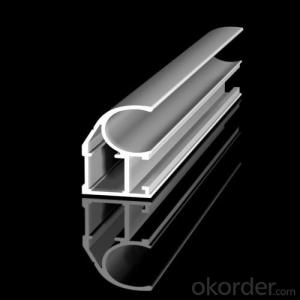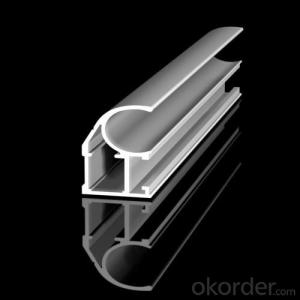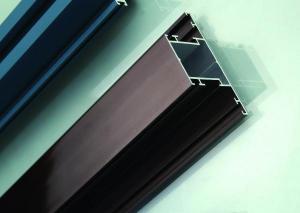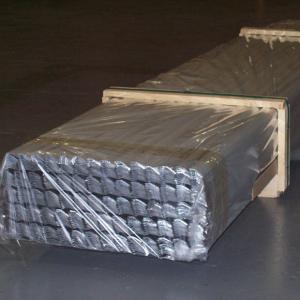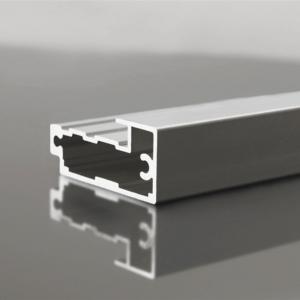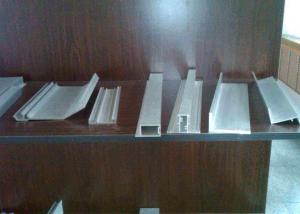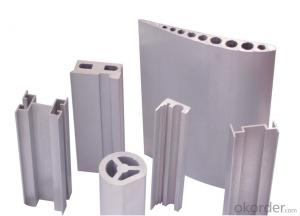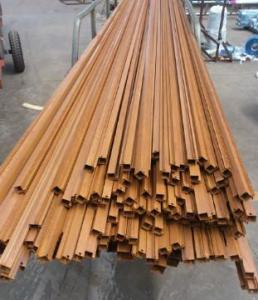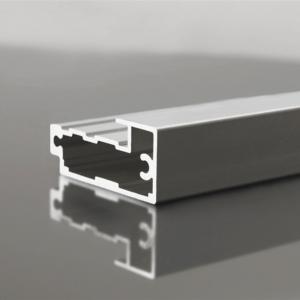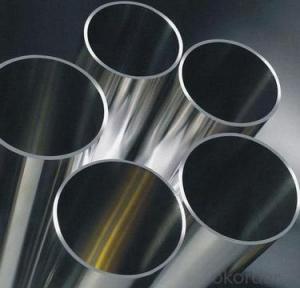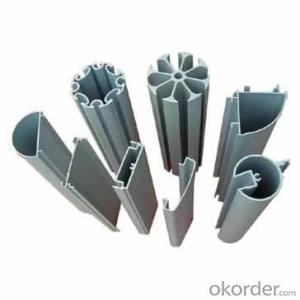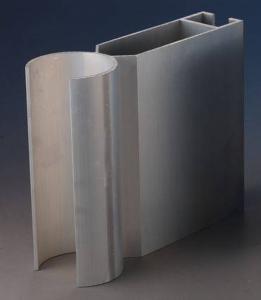High Quality Aluminium Profile Extrusion
- Loading Port:
- China Main Port
- Payment Terms:
- TT OR LC
- Min Order Qty:
- -
- Supply Capability:
- -
OKorder Service Pledge
OKorder Financial Service
You Might Also Like
Aluminium is a relatively soft,durable, lightweight, ductile and malleablemetal with appearance ranging from silvery to dull gray,depending on the surface roughness. It is nonmagnetic and does not easilyignite. A fresh film of aluminium serves as a good reflector (approximately92%) of visible light and an excellent reflector (as much as98%) of medium and far infrared radiation. The yield strength of pure aluminium is 7–11 MPa,while aluminium alloys have yield strengths ranging from200 MPa to 600 MPa. Aluminium has about one-third the density and stiffnessof steel. It iseasily machined,cast, drawn and extruded.
Aluminum Profile
Material | Alloy 6063,6061,6005or according to customer’s choice |
Temper | T3, T4, T5, T6 |
Surface | Anodize, electrophoresis, powder coating, PVDF coating, wood grain painting, matted, etc. |
Length | Coating 6.5 meters, Anodizing 6.5 meters, Mill finish 5 meters |
Application | Industrial, electrical equipment(TV set, air conditioner, refrigerator, computer), decoration,construction, transportation |
Custom Made | We can package following with customer's request. |
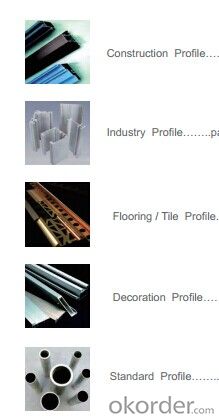
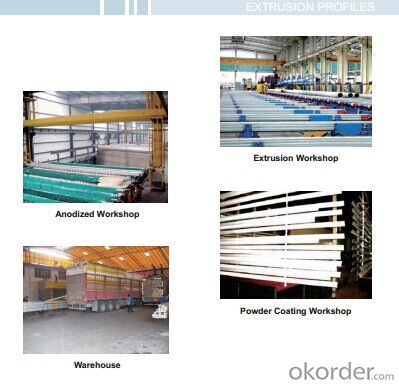
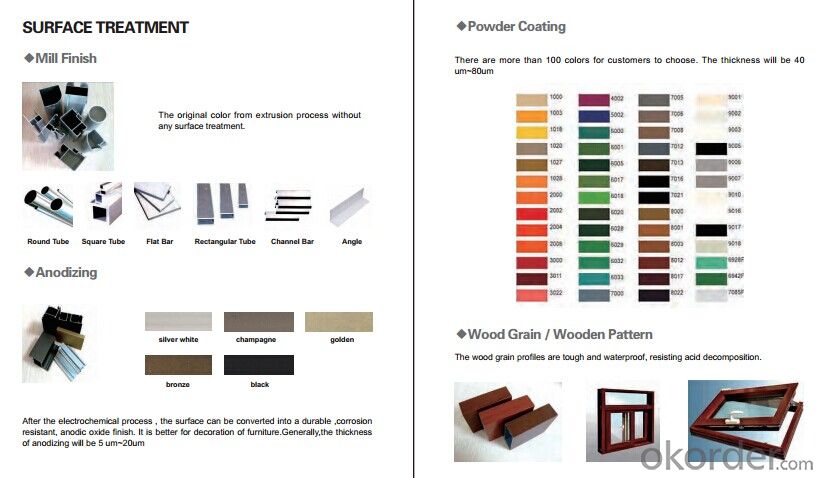
- Q:What are the different shapes and sizes of aluminum profiles available?
- Aluminum profiles come in various shapes and sizes depending on their application. Some common shapes include T-shape, U-shape, square, round, and rectangular. The sizes can range from small profiles used for decorative purposes to larger ones used in structural applications. The dimensions of these profiles can vary, with width, height, and thickness being the key factors. Additionally, custom profiles can also be manufactured to meet specific requirements.
- Q:Are aluminum profiles suitable for transportation equipment?
- Indeed, aluminum profiles are well-suited for transportation equipment. With its lightweight and durable nature, aluminum proves to be an excellent material choice, possessing a remarkable strength-to-weight ratio that makes it ideal for a wide range of transportation applications. Notably, it finds extensive use in the construction of aircraft, automobiles, trains, and ships. The advantages offered by aluminum profiles are numerous, including corrosion resistance, high thermal conductivity, and easy formability, enabling the creation of intricate and customized designs. Moreover, aluminum is environmentally friendly as it is recyclable, further enhancing its appeal as a sustainable option for transportation equipment. In summary, aluminum profiles excel in the transportation equipment field due to their lightweight nature, strength, versatility, and sustainability.
- Q:Are aluminum profiles resistant to chemicals or solvents?
- Aluminum profiles, in general, exhibit resistance to chemicals and solvents. Aluminum is renowned for its exceptional ability to resist corrosion, which also translates to its resistance against the majority of chemicals and solvents. Nonetheless, it is crucial to acknowledge that the degree of resistance can fluctuate based on the particular chemical or solvent in question. Certain extremely corrosive chemicals or solvents might gradually impact aluminum profiles. Hence, seeking guidance from the manufacturer or performing precise tests is advisable to guarantee compatibility with a specific chemical or solvent.
- Q:What's the price of aluminum alloy die castings and aluminum profiles?
- In fact, the price is different, mainly depends on quality
- Q:Can aluminum profiles be used for creating lightweight furniture?
- Indeed, lightweight furniture can be fashioned using aluminum profiles. Given its lightweight and durable nature, aluminum proves to be an optimal choice for furniture design when weight is a factor to be taken into account. The malleability of aluminum profiles allows for their transformation into an assortment of furniture elements, including frames, legs, and supports. Moreover, the corrosion resistance offered by aluminum profiles is highly advantageous for furniture intended for outdoor or moisture-exposed environments. The adaptability of aluminum profiles enables the conception of elegant and contemporary furniture designs that not only possess a feather-light quality but also possess an aesthetically appealing allure.
- Q:Can aluminum profiles be used in roofing systems?
- Yes, aluminum profiles can be used in roofing systems. Aluminum is a lightweight and durable material that is resistant to corrosion, making it an ideal choice for roofing applications. Aluminum profiles can be used to create various roofing components, such as gutters, downspouts, and flashing, which help to channel water away from the roof and prevent leaks. Additionally, aluminum profiles can be easily fabricated and customized to fit the specific requirements of a roofing system. Overall, aluminum profiles offer numerous advantages for roofing systems, including strength, durability, and resistance to weathering, making them a popular choice for both residential and commercial roofing projects.
- Q:Can aluminum profiles be bent or shaped?
- Aluminum profiles possess the capability of being bent or shaped in various ways. As a metal, aluminum is incredibly versatile and pliable, enabling it to effortlessly adopt numerous shapes and configurations. The procedure of bending or shaping aluminum profiles entails the application of heat and force to the metal, allowing it to be manipulated to one's desired form. This adaptability renders aluminum profiles exceptionally suitable for a wide array of industries, including construction, automotive, and aerospace, which demand materials that are both lightweight and durable. Moreover, aluminum profiles can also undergo extrusion, a process involving the metal being pushed through a die to create a specific shape or cross-section. All in all, the capacity to bend and shape aluminum profiles establishes them as a highly favored choice across various industries.
- Q:What are the advantages of using aluminum profiles in the telecommunications industry?
- There are several advantages of using aluminum profiles in the telecommunications industry. Firstly, aluminum profiles are lightweight yet strong, making them an ideal choice for constructing telecommunications infrastructure such as antenna towers and satellite dishes. Their lightweight nature allows for easy transportation and installation, reducing both time and cost. Secondly, aluminum profiles have excellent corrosion resistance properties. This is crucial in the telecommunications industry as it often involves exposure to harsh weather conditions and corrosive elements like saltwater. Aluminum profiles can withstand these conditions without deteriorating, ensuring the longevity and reliability of telecommunication equipment. Furthermore, aluminum profiles are highly adaptable and can be easily customized to meet specific design requirements. They can be extruded into various shapes and sizes, allowing for the creation of complex structures that can accommodate different telecommunications equipment. This versatility enables efficient integration of various components and facilitates the installation and maintenance processes. Additionally, aluminum profiles offer excellent thermal conductivity, which is essential in the telecommunications industry. As telecommunication equipment generates heat during operation, efficient heat dissipation is crucial to prevent overheating and equipment failure. Aluminum profiles effectively dissipate heat, ensuring optimal performance and longevity of telecommunication devices. Lastly, aluminum is a sustainable and eco-friendly material. It is 100% recyclable, meaning that old or damaged aluminum profiles can be recycled and repurposed into new products, reducing waste and environmental impact. The telecommunications industry can benefit from using aluminum profiles as part of their commitment to sustainability. In conclusion, the advantages of using aluminum profiles in the telecommunications industry include their lightweight yet strong nature, corrosion resistance, adaptability, thermal conductivity, and sustainability. These characteristics make aluminum profiles an excellent choice for constructing telecommunication infrastructure, ensuring reliable performance, and reducing environmental impact.
- Q:Can aluminum profiles be used for trade show booths?
- Yes, aluminum profiles can be used for trade show booths. Aluminum is a lightweight and versatile material that is commonly used in the construction of trade show booths due to its durability, ease of customization, and cost-effectiveness. It allows for the creation of sturdy and portable structures that can be easily assembled and disassembled for transportation to different events. Additionally, aluminum profiles can be used to create various booth designs and configurations, providing flexibility and adaptability to specific trade show requirements.
- Q:Are aluminum profiles suitable for greenhouse structures?
- Indeed, greenhouse structures find aluminum profiles to be well-suited. Given its durability, lightweight properties, and resistance to corrosion, aluminum has become a favored material for constructing greenhouse frames. The use of aluminum profiles ensures robustness and steadiness, enabling the creation of resilient greenhouse structures capable of enduring diverse weather conditions. Moreover, aluminum proves to be easily malleable and readily adaptable to meet specific design needs. Furthermore, its low-maintenance nature necessitates only minimal upkeep over time. All in all, aluminum profiles present themselves as a dependable and pragmatic option for greenhouse structures.
1. Manufacturer Overview |
|
|---|---|
| Location | |
| Year Established | |
| Annual Output Value | |
| Main Markets | |
| Company Certifications | |
2. Manufacturer Certificates |
|
|---|---|
| a) Certification Name | |
| Range | |
| Reference | |
| Validity Period | |
3. Manufacturer Capability |
|
|---|---|
| a)Trade Capacity | |
| Nearest Port | |
| Export Percentage | |
| No.of Employees in Trade Department | |
| Language Spoken: | |
| b)Factory Information | |
| Factory Size: | |
| No. of Production Lines | |
| Contract Manufacturing | |
| Product Price Range | |
Send your message to us
High Quality Aluminium Profile Extrusion
- Loading Port:
- China Main Port
- Payment Terms:
- TT OR LC
- Min Order Qty:
- -
- Supply Capability:
- -
OKorder Service Pledge
OKorder Financial Service
Similar products
New products
Hot products
Related keywords
